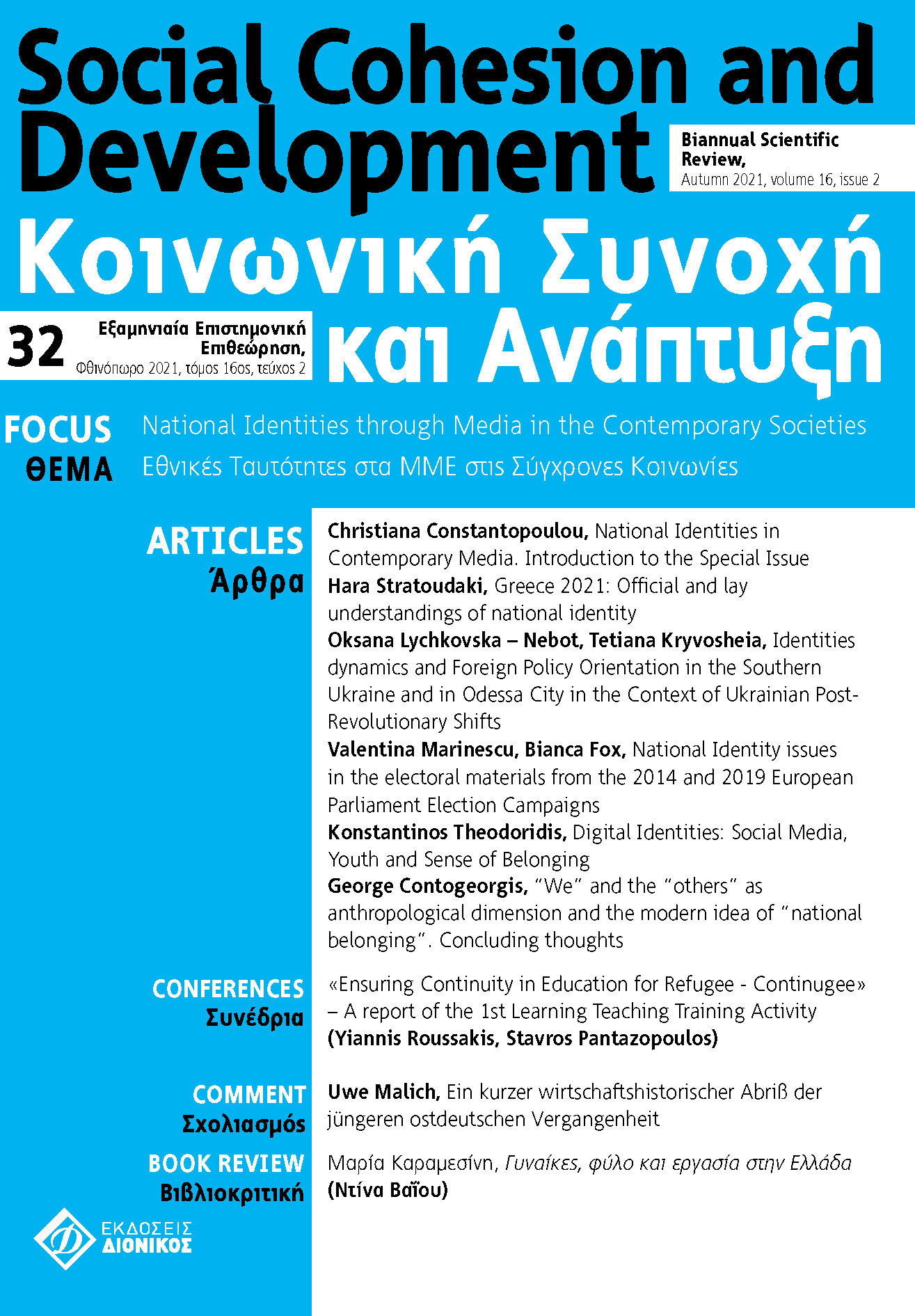Digital Identities: Social Media, Youth and Sense of Belonging

Abstract
The impact of social media on the formation
of contemporary identities is emerging as a
key issue in social sciences. Young people’s
self-presentation practices and selfie pictures
are approached as a means of navigating their
everyday lives. Utilising qualitative data collected
both in Greater Athens, Greece and
North West of England, UK, this study examines
the role of digital media in an attempt to
understand how young people negotiate their
identities in an increasingly complex and uncertain
world. The data were produced during
focus group discussion and photo-elicitation
interviews as part of a triangulated research
project that tried to shed light on the construction
of young people’s identities. Based
on the findings, it is suggested that social
media provide a space in which young people
try to find some sense of belonging, however,
it can be argued that this process ties young
people to the very logic of individualism and
market-based competition.
Article Details
- Zitationsvorschlag
-
Theodoridis, K. (2024). Digital Identities: Social Media, Youth and Sense of Belonging. Social Cohesion and Development, 16(2), 153–164. https://doi.org/10.12681/scad.32203 (Original work published 1. September 2021)
- Rubrik
- Articles

Dieses Werk steht unter der Lizenz Creative Commons Namensnennung - Nicht-kommerziell - Weitergabe unter gleichen Bedingungen 4.0 International.
Authors who publish with this journal agree to the following terms:
- Authors retain copyright and grant the journal right of first publication with the work simultaneously licensed under a Creative Commons Attribution Non-Commercial License that allows others to share the work with an acknowledgement of the work's authorship and initial publication in this journal.
- Authors are able to enter into separate, additional contractual arrangements for the non-exclusive distribution of the journal's published version of the work (e.g. post it to an institutional repository or publish it in a book), with an acknowledgement of its initial publication in this journal.
- Authors are permitted and encouraged to post their work online (preferably in institutional repositories or on their website) prior to and during the submission process, as it can lead to productive exchanges, as well as earlier and greater citation of published work (See The Effect of Open Access).


